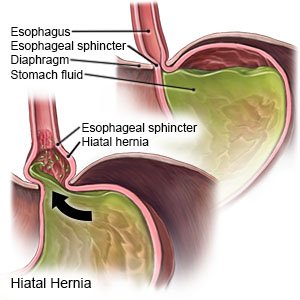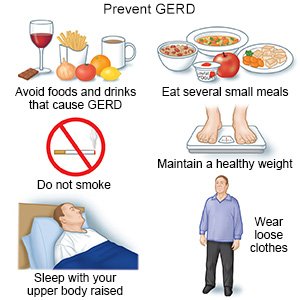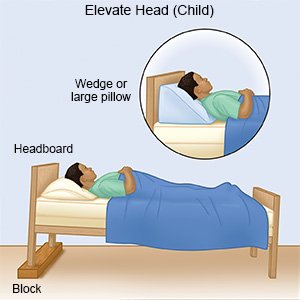Hiatal Hernia in Children
Medically reviewed by Drugs.com. Last updated on Aug 4, 2025.
AMBULATORY CARE:
A hiatal hernia
is a condition that causes part of your child's stomach to bulge through the hiatus (small opening) in the diaphragm. This part of the stomach may move up and down, or it may get trapped above the diaphragm. Your child may have been born with a large or weak hiatus, or with the hiatal hernia.
 |
Common symptoms include the following:
The most common symptom is heartburn. This usually occurs after meals. Your child may also have any of the following:
- Abdominal pain, especially in the area just above your child's bellybutton
- Burping or hiccups that happen often
- Vomiting or spitting up
- Coughing or hoarseness
- Not eating well because of fullness or bloating
- Poor growth
- Dark bowel movements
- Breathing problems such as wheezing
- Lung infections such as pneumonia that happen often
Call your local emergency number (911 in the US) if:
- Your child has severe chest pain and sudden trouble breathing.
Seek care immediately if:
- Your child has severe abdominal pain.
- Your child's bowel movements are black or bloody.
- Your child's vomit looks like coffee grounds or has blood in it.
- Your child cannot swallow food or liquids.
Call your child's doctor if:
- Your child's symptoms are getting worse.
- Your child has nausea and is vomiting.
- Your child is losing weight.
- You have questions or concerns about your child's condition or care.
Treatment for a hiatal hernia
may not be needed. Your child's hiatal hernia may go away on its own if it is diagnosed during infancy. Any of the following may be used to treat a hiatal hernia or the symptoms it causes:
- Medicines may be given to relieve heartburn symptoms. These medicines help to decrease or block stomach acid.
- Surgery may be done when medicines cannot control your child's symptoms, or other problems are present. Your child's healthcare provider may also suggest surgery depending on the type of hernia your child has. A surgeon can put your child's stomach back into its normal location. The surgeon may make the hiatus (hole) smaller and anchor your child's stomach in the abdomen. Fundoplication is a surgery that wraps the upper part of your child's stomach around the esophageal sphincter to strengthen it.
Treatment options
The following list of medications are related to or used in the treatment of this condition.
- omeprazole
- famotidine
- lansoprazole
- aluminum hydroxide/magnesium hydroxide/simethicone
- aluminum hydroxide/magnesium trisilicate
Care for your child:
The following nutrition and lifestyle changes may be recommended to relieve symptoms of heartburn:
 |
- Do not give your child foods or drinks that may increase heartburn. These include chocolate, peppermint, spicy, fatty, or fried foods, drinks that contain caffeine, or carbonated drinks (soda). Do not give your child citrus fruits, tomatoes, and juices.
- Give your child several small meals during the day. Your child's stomach will make more acid to digest large amounts of food. Remind your child to eat 6 small meals a day and to eat slowly.
- Tell your child not to lie down after eating. Do not allow your child to eat meals 2 to 3 hours before bedtime.
- Help your child avoid abdominal pressure. Tell your child to wear clothes that are loose around the waist. Tell your child not to bend forward after meals.
- Help your child achieve or maintain a healthy weight. If your child has excess weight, weight loss may help relieve some symptoms.
- Keep your child's head and upper body elevated at least 6 inches during sleep. Ask your child's healthcare provider how to do this safely. Do not put pillows under a young child's head.

Follow up with your child's doctor as directed:
Write down your questions so you remember to ask them during your visits.
© Copyright Merative 2025 Information is for End User's use only and may not be sold, redistributed or otherwise used for commercial purposes.
The above information is an educational aid only. It is not intended as medical advice for individual conditions or treatments. Talk to your doctor, nurse or pharmacist before following any medical regimen to see if it is safe and effective for you.
Learn more about Hiatal Hernia
Treatment options
Care guides
Symptoms and treatments
Further information
Always consult your healthcare provider to ensure the information displayed on this page applies to your personal circumstances.
